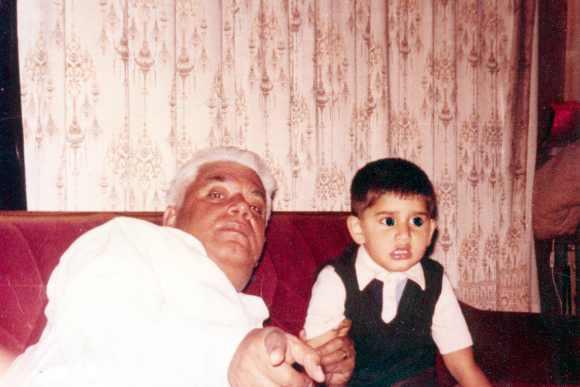
In an interview to rediff.com's Priyanka, Rohit Shekhar, who is fighting a paternity case against veteran Congress leader N D Tiwari, speaks about his 'bizarre' childhood and his long legal battle.
For 33-year-old Rohit Shekhar his growing up days were bizarre. His youth was no different where many questions went unanswered regarding his father.
And then a struggle began in 2007. Shekhar, then 28, filed a paternity suit to claim that veteran Congress leader N D Tiwari was his biological father. Since then, Shekhar has been running from pillar to post, from one court to another, as his 'father' for long evaded court orders.
Finally acting on the Supreme Court's directive, Tiwari gave his blood sample. As Shekhar awaits the results his recalls his "confusing" childhood.
"I used to be confused and befuddled," Shekhar says, and often wondered about the man who met him and his mother secretly, in Delhi and in Lucknow. At times, his mother used to dress him in strange outfits, something one would put on for a fancy dress or in the attire of Lord Krishna to secretly sneak in and meet the man.
"As a child, I used to wonder, who is this man," says Shekhar. When he turned eleven, his mother revealed to him that this man was his biological father -- ND Tiwari. Shekhar claims that dad showered him all his affection, but only within the confines of his bedroom.
"He used to tell my mother, yeh hamara beta hai, yeh apna rasta khud banaega. But the moment we stepped out he was a different man," Shekhar recalls. "It deeply hurt me."
...

Tiwari met Shekhar's mother Ujjwala Sharma during the late 1960s. As an upcoming leader then, he sought refuge and guidance from her father and seasoned politician Professor Sher Singh. Sharma holds a doctorate in Sanskrit and back then she headed the women's youth Congress wing.
"Somewhere, Tiwari had judged that I was in a failed marriage," says Sharma and he started "pursuing me". He was in full praise of her and said she was well educated and a gifted singer. "Tiwari then said that we should have a child together," she recalls.
After almost seven years of trying to convince her, Sharma says she couldn't dismiss Tiwari's advances as mere flirting. "I used to think that seven years is a fairly long time and he must be serious."
And then they had son.
Tiwari had assured her that he would adopt Shekhar when the time was right. But as the years passed, it became clear to her that Tiwari was not going to adopt him. Furthermore, he snapped all ties with her when Shekhar turned sixteen in 1995.
...
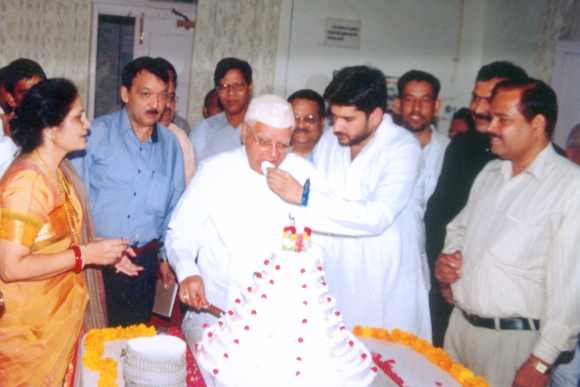
Years later, Shekhar decided to confront Tiwari and question him about the promise he had made to his mother. He met Tiwari in 2002. And even then though all party workers knew that he was Tiwari's son, the leader never let that show in the public, Shekhar claims.
"It was the same every time. Behind closed doors, he spoke affectionately, but refused to acknowledge me in public," Shekhar says. "I suffered a massive heart attack when I was 28. Still, he never asked how I was. He is merciless. I feel he was just being a politician and playing games to buy time."
He finally tested waters on the 80th birthday party of the veteran Congress leader on October 18, 2005. When he was rebutted again in public by Tiwari, Shekhar decided he had enough and filed a paternity suit against Tiwari in 2007. In a first-of-its-kind case, it was the child and not either of the parent, who was seeking to establish his paternity.
The court case initially dragged on for a couple of years. "Tiwari's lawyers tried to dilute the case," he says.
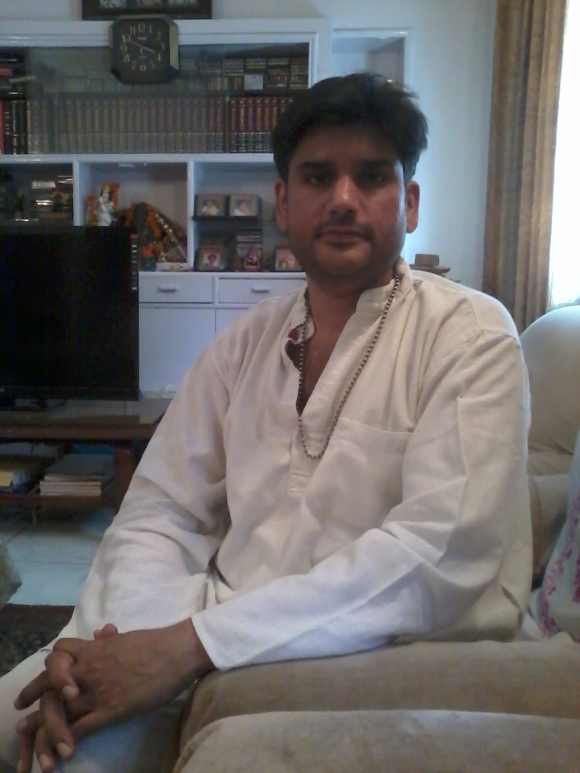
Perhaps the first turning point in the case arrived in November 2008 when single bench judge Justice Reva Khatrapal sent summons to the sitting governor and Tiwari was summoned to be present in court. (Tiwari was the chief minister of Uttar Pradesh three times during the 1970s and 1980s and was the CM of Uttarkhand from 2002 to 2007. A member of the Congress, he subsequently served as the governor of Andhra Pradesh from 2007 until 2009.)
Tiwari challenged the court order and appealed. It took another two and half years for Tiwari to file his written statements in response to the paternity suit.
To begin with, the deeply feudal and suppressing mindset irked Shekhar and drove him to file a court case. Shekhar says, "I would always hear people say, yeh toh bade logo ke shouk hote hai, and I used to feel so angry and question how people can accept this."
He would find such remarks very offensive and humiliating and often wondered why nobody raised their voice against it. "Nobody can be treated like a piece of furniture," says Shekhar.
"Any person who chooses to have a child should also accept their responsibility towards the him and give the child the deserved dignity."
He points out, "This man (Tiwari) has held some very important constitutional posts over the years."
"And he is been lying openly in courts, filing affidavits' that he doesn't know me at all," Shekhar says, "Aisa aadmi kuch bhi kar sakta hai. He is capable of any corruption."
Click on NEXT for more...
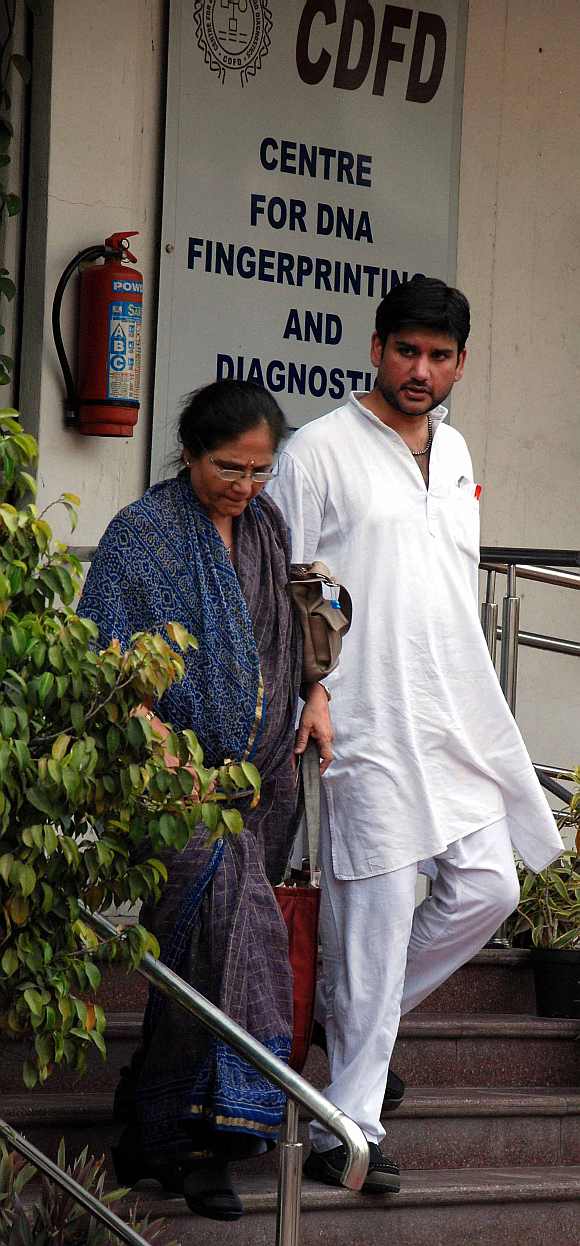
The court case is now about establishing the paternity roots of Shekhar. During the court arguments, Tiwari's lawyers had argued in court that a child establishing his paternity outside his mother's marriage is against public policy and will deeply inflict damage to marriage as an institution.
Shekhar said, "A case like this has never come up before the court when a person is seeking to be a bastard child. But my argument is that I am seeking the truth."
In fact, it was Justice S Ravindra Bhat's judgment in December 2010, which interestingly cited that the legitimacy and paternity of a child as two distinct entities.
Shekhar argues that the case is far more pertinent today. "There are unequal power equations in the society and a child could be born out of gang rape, marital rape, a live-in relationship or a one-night stand."
"Why is the child born called a bastard. Why is the women called unchaste. Words such as bastard, mistress, keep, concubines should be removed from our legal lexicon," he says.
The judgment also established an eminent need to conduct a DNA test, as it was the only way to find out about the paternity. "Getting the DNA test was not easy. The order came after three long years," Shekhar says.
After a long wait, the blood samples of Tiwari were finally collected from his residence in Dehradun on May 29. The samples have sent for a lab test and result would reach the court later this month or early next.
"I am sure there are millions out there like me. And I not going to stop here," he says.
"I will have two fathers -- one legitimate and the other biological. And there must be guidelines to tell me what I should write on my passport, my Bar Council certificates."
"You can't leave me hanging in a limbo," he asserts.
Click on NEXT for more...
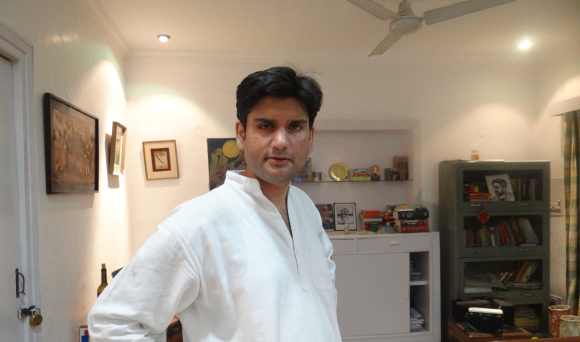
September 13, 2007: The paternity suit was initially filed by Rohit Shekhar on this date. Interestingly both N D Tiwari and mother Ujjwala Sharma were being tried.
April 11, 2008: On directions of a Delhi high court order dated March 24, 2008, a fresh case was filed.
November 25, 2008: A historic judgment was given out by single bench judge J Reva Khetrpal summoning sitting governor of Andhra Pradesh to be present in court on the day of the next hearing on December 16, 2008. Tiwari refused to comply with this order and challenged the summons.
November 3, 2009: A single judge bench comprising Justice S N Dhingra dismissed the case saying it is beyond the jurisdiction of Delhi.
March 17, 2010: The division bench at the Delhi HC, Justice J Vikamjit Sen and Justice Manmohan Singh overruled the order, and gave a go-ahead to the case citing that N D Tiwari was allotted residence in Delhi under the freedom fighter's quota.
April 7, 2010: A single bench judge J R Midha directed Tiwari to file his written statement in response to suit filed against him with four weeks.
May 4, 2010: Tiwari finally files his statement.
December 23, 2010: A single bench judge comprising Justice S Ravindra Bhat in a landmark judgment said this was a first-of-its kind case where the child is seeking paternity. The judgment also drew a distinction between the legitimacy and the paternity of a child. It also cited that there is an eminent need to conduct a DNA test to establish the paternity of the child. The lawyers of Tiwari opposed this ruling and went to the Supreme Court.
March 3, 2011: The SC refuses to stay the order of conducting a DNA test to establish if Tiwari is Shekhar's biological father.
September 23, 2011: A single judge bench comprising Justice J Geeta Mittal in an order said that while the Tiwari's refusal to a DNA test is unjustified, malafide, unreasonable, yet he cannot be compelled to give a blood sample.
April 27, 2012: A division bench comprising Justice A K Sikri and Justice J Rajiv Sahai set aside the order.
May 16, 2012: Single bench judge Justice Reva Khetrapal summons Tiwari to be present in court on May 21 to collect blood samples. Tiwari's lawyers' say his ailing health make it impossible for him to attend to court proceedings.
May 24, 2012: The SC gives stern orders to Tiwari. Blood samples are finally collected at his residence in Dehradun on May 29, 2012.
Click on NEXT for more...
...